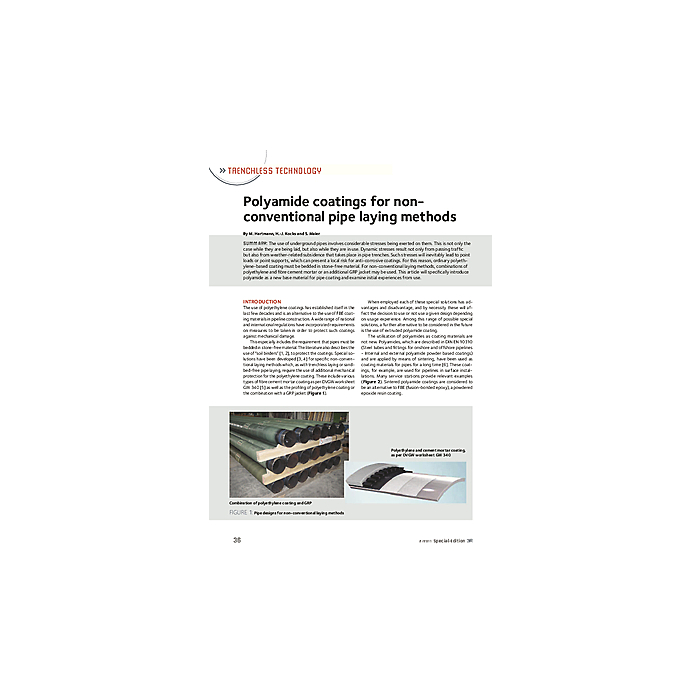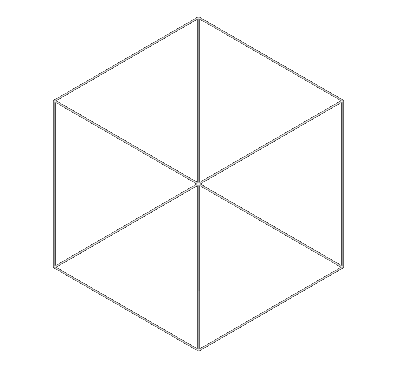Polyamide coatings for non-conventional pipe laying methods
4,90 €
Auf Lager
Artikelnummer
01252_2011_SP2_09
The use of underground pipes involves considerable stresses being exerted on them. This is not only the case while they are being laid, but also while they are in use. Dynamic stresses result not only from passing traffic but also from weather-related subsidence that takes place in pipe trenches. Such stresses will inevitably lead to point loads or point supports, which can present a local risk for anti-corrosive coatings. For this reason, ordinary polyethylene-based coating must be bedded in stone-free material. For non-conventional laying methods, combinations of polyethylene and fibre cement mortar or an additional GRP jacket may be used. This article will specifically introduce polyamide as a new base material for pipe coating and examine initial experiences from use.
| Autoren | M. Hartmann/H.-J. Kocks and S. Maier |
|---|---|
| Erscheinungsdatum | 30.09.2011 |
| Format | |
| Zeitschrift | 3R - Special 2 2011 |
| Verlag | Vulkan-Verlag GmbH |
| Sprache | English |
| Seitenzahl | 8 |
| Titel | Polyamide coatings for non-conventional pipe laying methods |
| Beschreibung | The use of underground pipes involves considerable stresses being exerted on them. This is not only the case while they are being laid, but also while they are in use. Dynamic stresses result not only from passing traffic but also from weather-related subsidence that takes place in pipe trenches. Such stresses will inevitably lead to point loads or point supports, which can present a local risk for anti-corrosive coatings. For this reason, ordinary polyethylene-based coating must be bedded in stone-free material. For non-conventional laying methods, combinations of polyethylene and fibre cement mortar or an additional GRP jacket may be used. This article will specifically introduce polyamide as a new base material for pipe coating and examine initial experiences from use. |
Eigene Bewertung schreiben


